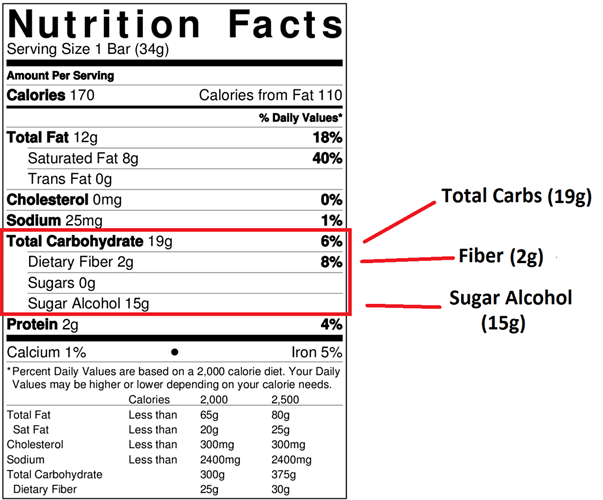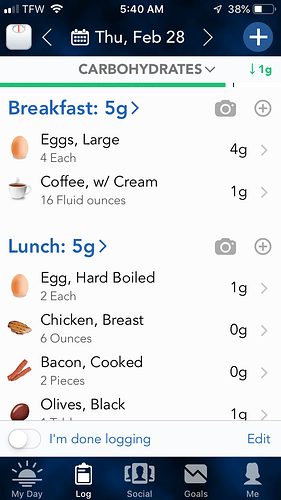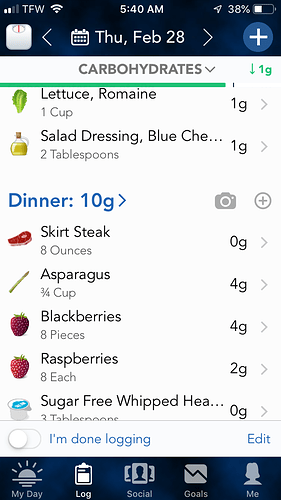I cannot seem to get below 50g (I usually fall between 54-66g carbs) if I keep veggies in my diet. Ex. broccoli at dinner and salad at lunch. It seems even a slice of deli turkey has 2g, my tumeric powder has 1g. As the day progresses, I cannot stay under 50g (nevertheless 30g) if I include veggies in my meals. Help? What am I doing wrong?
My macros average: 62% fat - 18% Carb - 20% Protien
Help! I can't get below 50g Carbs
This might help:
The Ketogenic Diet: Calorie Confusions & Details When Doing Keto and Intermittent Fasting:
Dr. Berg talks about the confusions and complexities of figuring out your macros on a keto and intermittent fasting program.
Most ketogenic plans is based on one meal a day, which is easy to understand, but when you add intermittent fasting, another variable.
Because when you go from 3 meals a day to 1 meal a day you will reduce your calories. And we also wanted to include veggies to this pie chart, because is another factor that most people neglect. As you consume your carbs, you can keep in your 20-30 grams for each meal.
Then you have protein, which you want to keep the 20% of total calories, but because you are reducing the frequency of eating, you will lessen the gram amount, (or the ounces).
Then you add the Fat Variable. In the beginning you need more fat, then as you adapt, you need you’ll less. However, most protein already comes with fat and the best way to deal with fat is to go by hunger and not always by a rule. If you are hungry, add more fat, if you are full, add less. Just don’t let yourself get bloated.
Hmm, seems like you are just eating too much. I am eating two meals a day within a four hour period and have been able to keep my carbs around 20g. Todays lunch one egg with spinach feta and bacon or sausage and dinner had chicken and veg with an alfredo sauce. Feel good and satisfied. No snacking at all.
Understanding Net Carbs on the Ketogenic Diet
Normally, we recommend 20 to 50g of carbohydrates per day but it is net carbs and not total carbs. Take the total carbs minus the fiber and it equals to the net carbs. Fiber typically has no response with insulin. In the US and Canada, the way they calculate the total carbs is they put in the fiber.
In other countries in Europe and Australia, they separate them out so you don’t have to do this calculation. Whenever you see as the total is the net carb but if you live in the US and Canada, you need to deduct the fibers to get the net carb which makes the big difference. Let’s say for example you have one cup of any of these foods, celery for example.
The total carb is 3g - fiber is 1.6g so the net carb = 1.4g. It is one and a half roughly which is so insignificant or that is never going to be an issue. Tomato has 7g total carb - 2.2g fiber = 4.8g. Hummus, 35g total carbs - 15g fiber = 20g of net carb.
Of course I doubt if you are going to consume a cup of hummus but if you might, you will still be at the normal range of the carb that you ate in the given day. Egg, 0.6g of total carbs - 0 fiber = 0.6g of net carb. Pineapple, 22g of total carbs - 23g of fiber = 19.7g net carb. Always calculate in the net carb and not the total carb.
Related:
It would be good to see what you’re eating. Yesterday was a very high protein day for me. I ate well and felt full. 19g of carbs. (I don’t always do so many eggs and four to five days a week, skip breakfast.)
I’ll admit - I don’t like much about Dr Berg. Dr. Naiman recommends 1 to 2 grams of protein per kg of optimal body weight.
I’m not fond of Dr Berg either. There are a lot of good resources out there. I like Amy Berger and Dr Westman quite a bit. Dr Berry also has good info and an entertaining style. (This is all personal opinion, not admin opinion.)
Keto fits with many ways of eating from carnivore to vegan, but the more plants in your diet the more challenging it will be to keep carbs low. Everyone has to find the way that fits best for their physical health and values.
Which is about 4 ounces protein if you weigh around 165 pounds or a little more in ounces of protein if you weigh more; same as Berg recommends?
Liking somebody and calculating numbers (doing the math?) are two different things or we just have a broken calculator?
I find that eating single item, whole foods makes it super easy to keep my carbs low. One to two cups of veggies, every day, make up the bulk of my carbs. Just remember that fat and protein are what keep you fullest the longest while the main purpose of the carbs is to bring vitamins and minerals to your way of eating, IMO.
Protein is like a glucose buffer for the brain; without it your ketones would skyrocket…lol
Well, what kinds of vegetables are you eating? We advise sticking to leafy greens, and cruciferous vegetables, such as broccoli and cauliflower. High-fat, lower-carb fruits, such as avocado and berries, are also fine to eat. (Berries more because of the fiber, than because they are actually all that low-carb.)
Many people also do not count the soluble or insoluble fiber contained in the vegetables they eat, since both types of fiber are indigestible. This is called counting “net carbs” in our jargon. A recent poll of our membership suggests that about 60% of us count net carbs, while the other 40% count total carbs.
It may comfort you to know that everyone’s carb tolerance is different. It is possible that yours is above the 20 g/day limit we advise. But that limit is one at which very nearly everyone can be sure of getting into ketosis (unless their metabolism is badly damaged, in which case they need to eat even less carbohydrate).
That’s way too high for any meat on keto. I don’t buy any proccessed meat that isn’t 1 g or less of carbs per 100 g and at least 25-30 grams of fat.
That’s a handy guideline. I’d also add that if you are going to eat processed meats then check labels. The same item across brands can have very different carb counts. Ham can have quite a bit of added sugar, but not always. And jerky is crazy! Sometimes more carbs than protein! Its enough to make me want to get a food dehydrator and make my own.
Have meat, will travel.
Also be sure to check the list of ingredients for added sugar, because it won’t always show up in the nutrition label. In the U.S., they are allowed to choose a serving size that makes a troublesome ingredient come out to less than 0.5 g/serving, in which case they are allowed to put 0 g. If some form of sugar shows up on the list of ingredients but is not mentioned in the nutrition label, I always assume that the amount per serving is 0.49999999999 g. And if it says “less than 1 g” of something, I always assume the amount per serving is 0.99999999999 g, just to be safe.
No, I was not taking Net Carbs into the equation. I’m using the Lose It! app and I have now learned about net carbs. Turns out I was averaging 28 - 34 net carbs per day. I feel much better about this.
Thank you!
Thank you all for your responses! It turns out I was far lower in carbs than I thought, as I hadn’t learned about Net Carbs. Once I switched my Lose It! app to net carbs, I was far lower in my daily carb count than I thought. I knew something was wonky because I have many of the symptoms of keto - insatiable thirst (glad that passed), keto flu hit me out of nowhere (glad that’s over!), waking up all night to urinate, dry mouth, etc. I’m waiting on some test strips coming in the mail, so I can be sure, but in the first 5 days, I lost 9 pounds! (I’m also keeping an eye on my calories as I have 120 pounds to lose) All water, I know, but still exciting.
Thank you again for your comments and help.
Good to hear.
Still be careful because that is on the high side. Most people target 20g Net Carbs.
There is nothing special about “20”, it’s just guaranteed to work for most of the people most of the time … But if your personal carb limit is 30 or even 80 then that’s your limit …
We are really trying to avoid insulin overload which requires a pathology test to measure, not convenient, so in the absence of lab tests we measure carbs as an approximation.
I just eat beef/lamb/chicken/fish and veggies with butter or salid with olive oil - easily stay near 20g.




